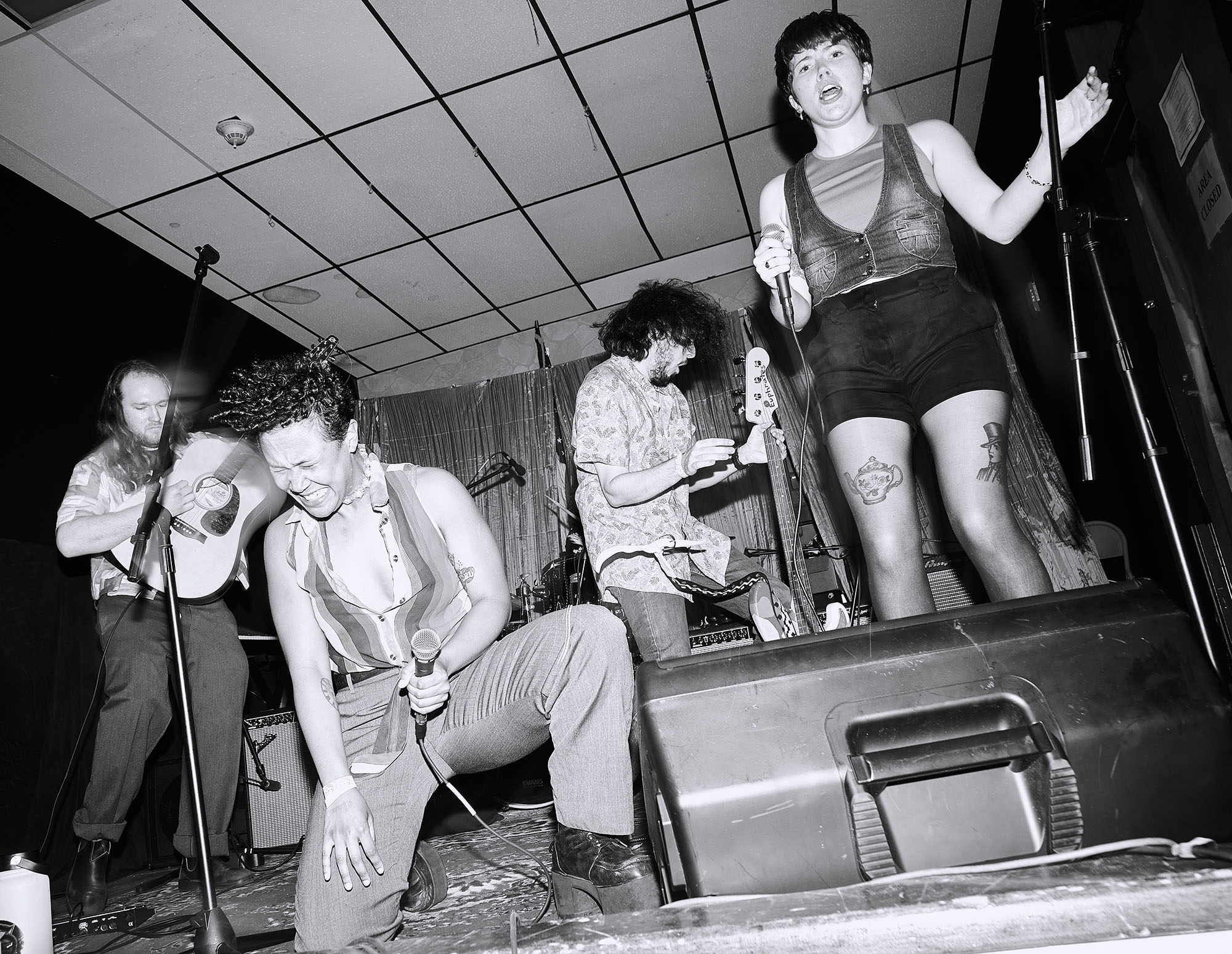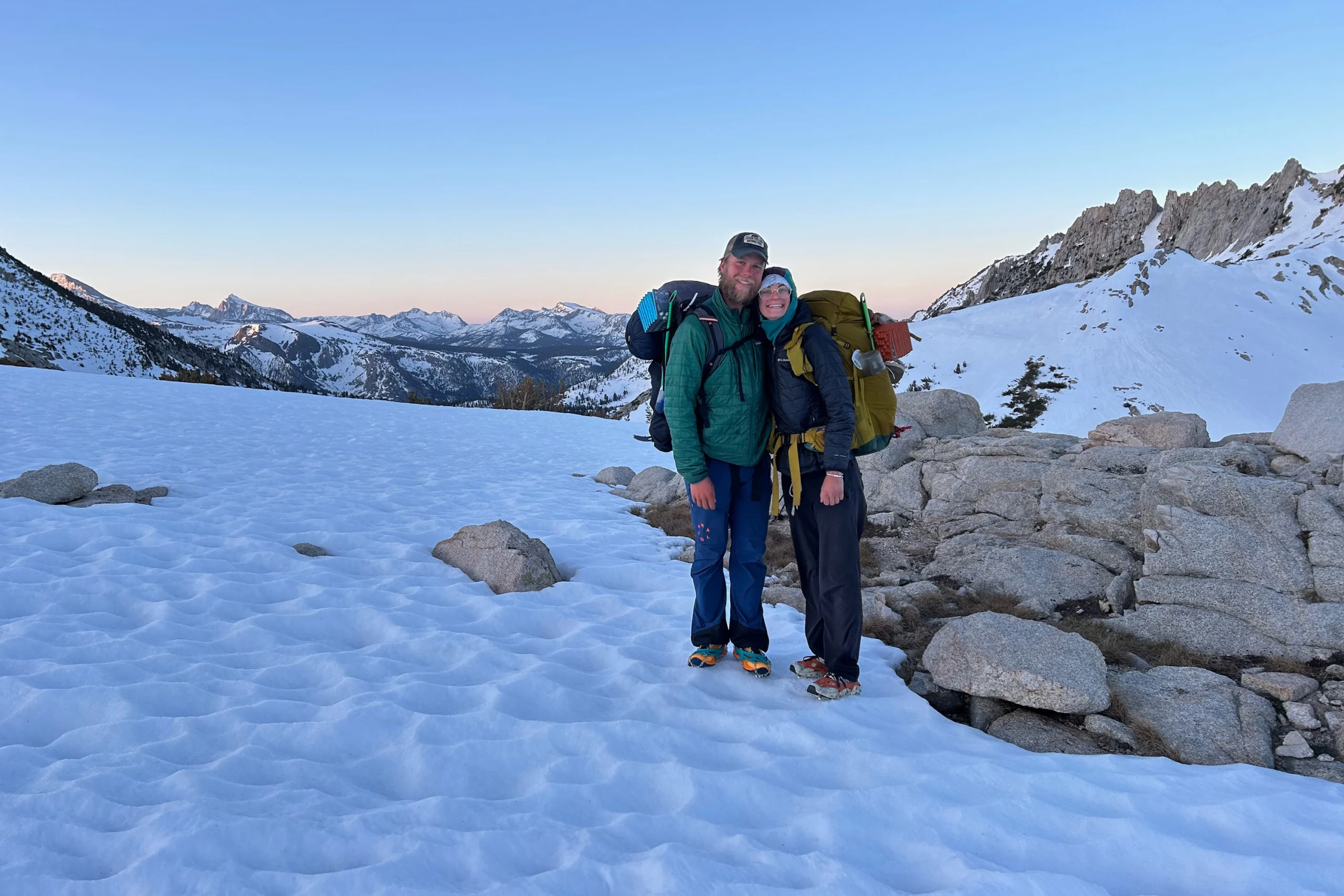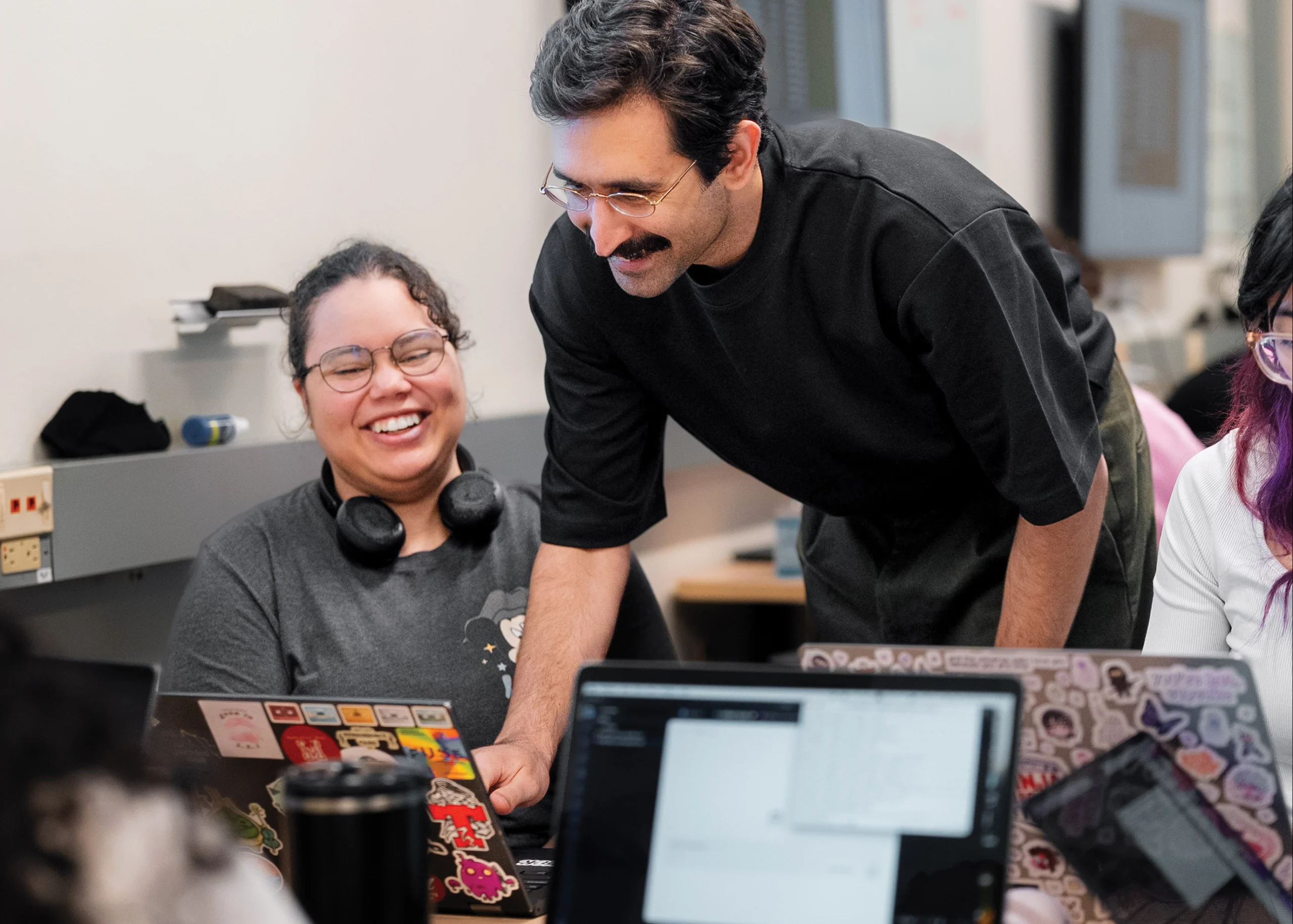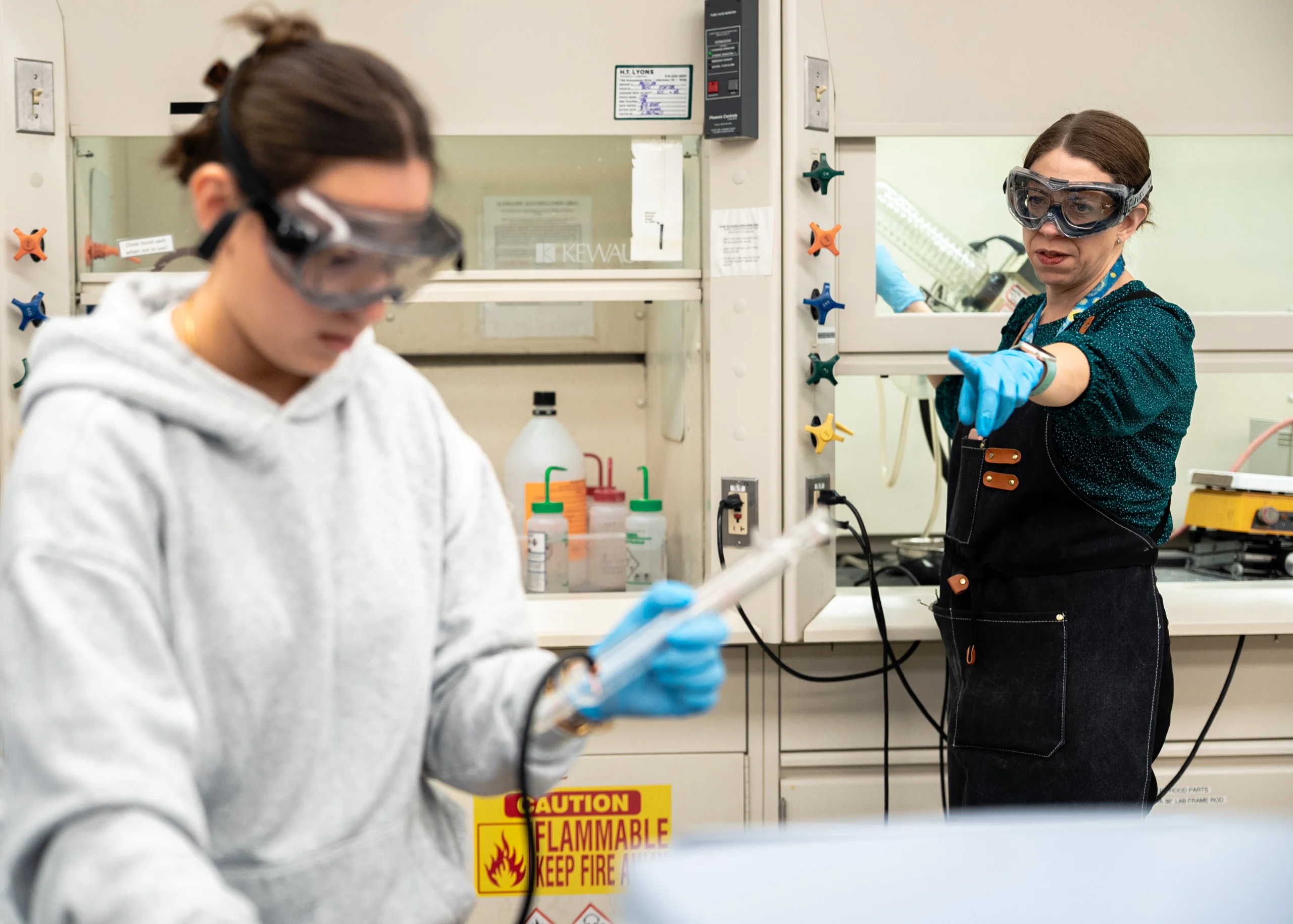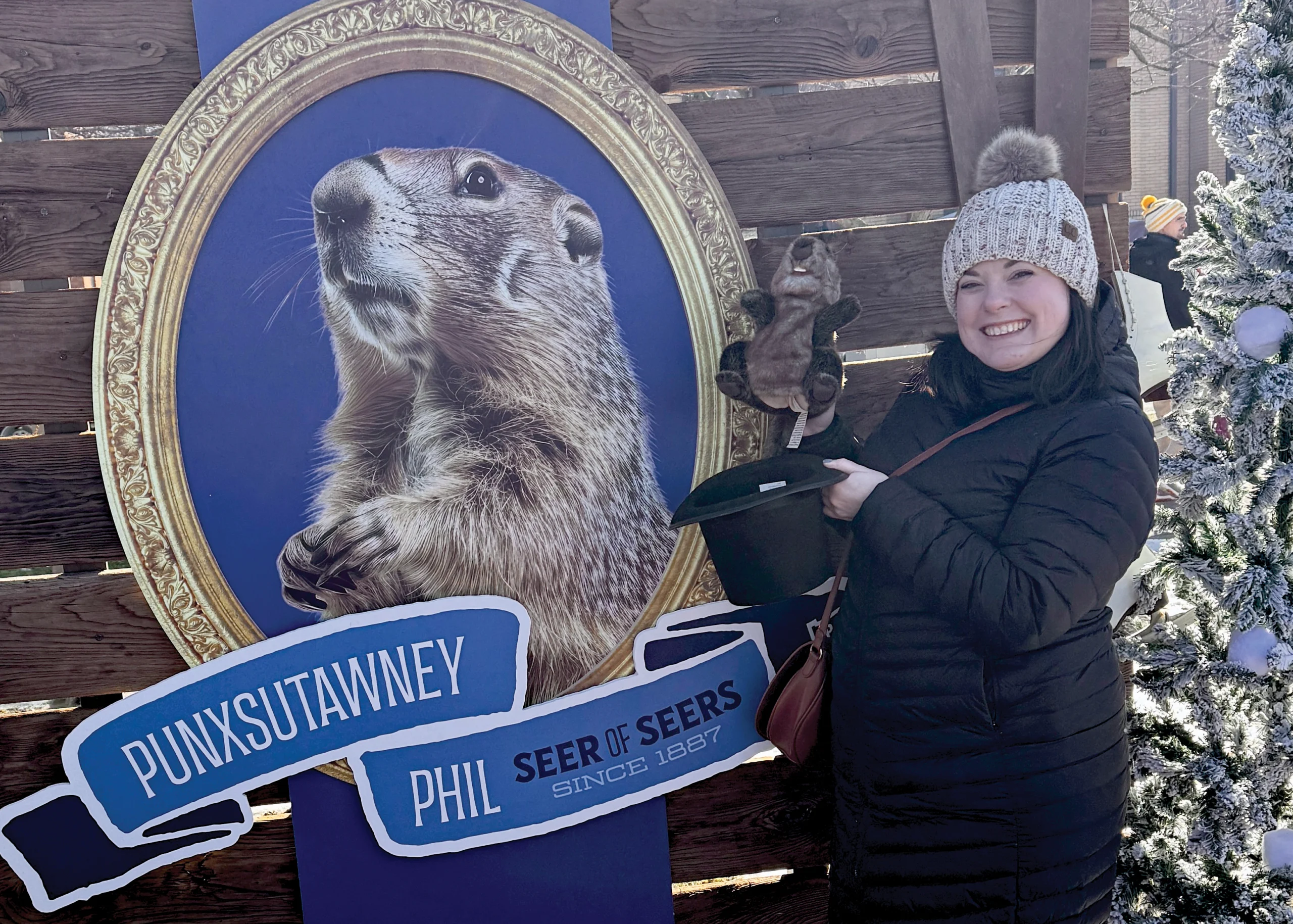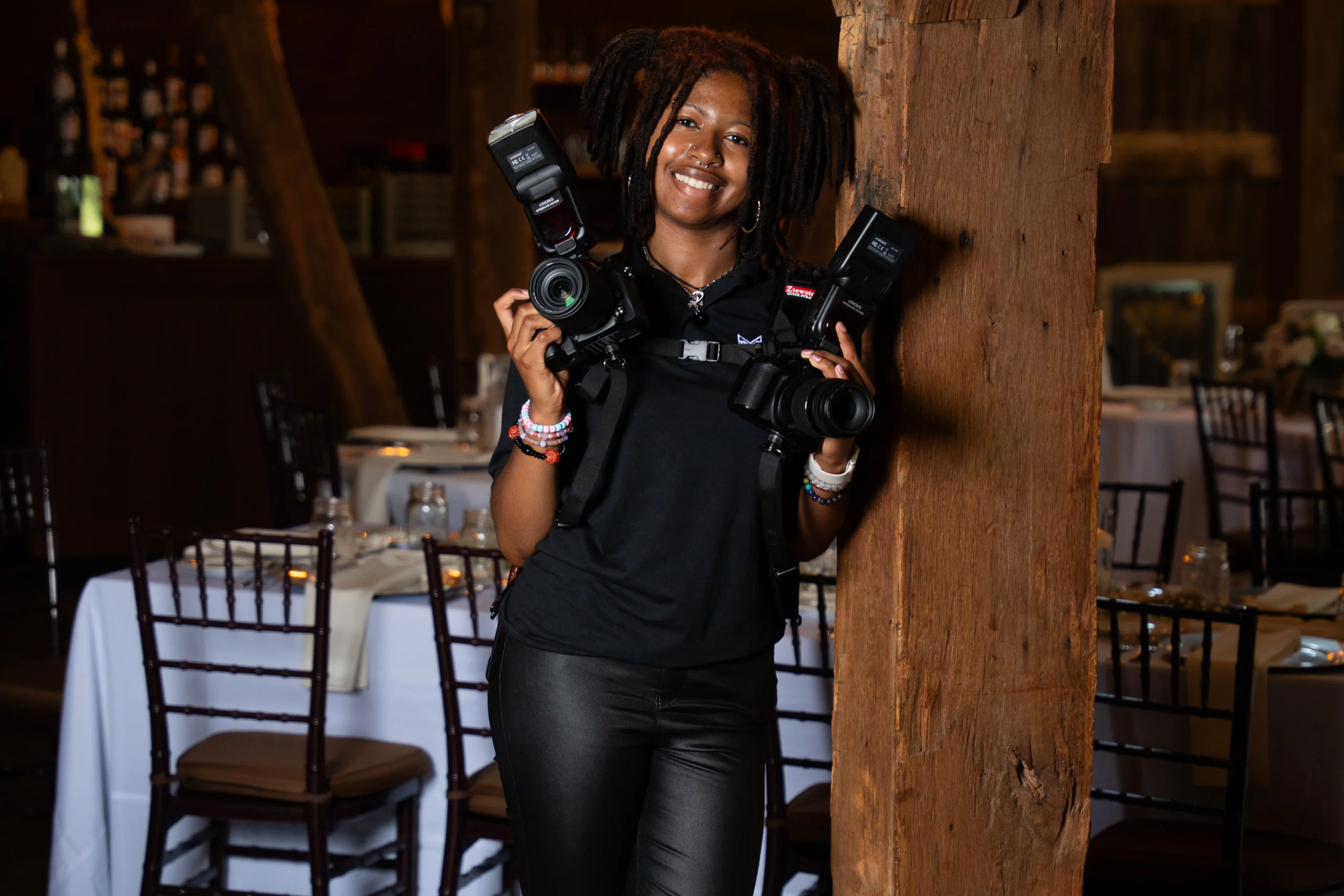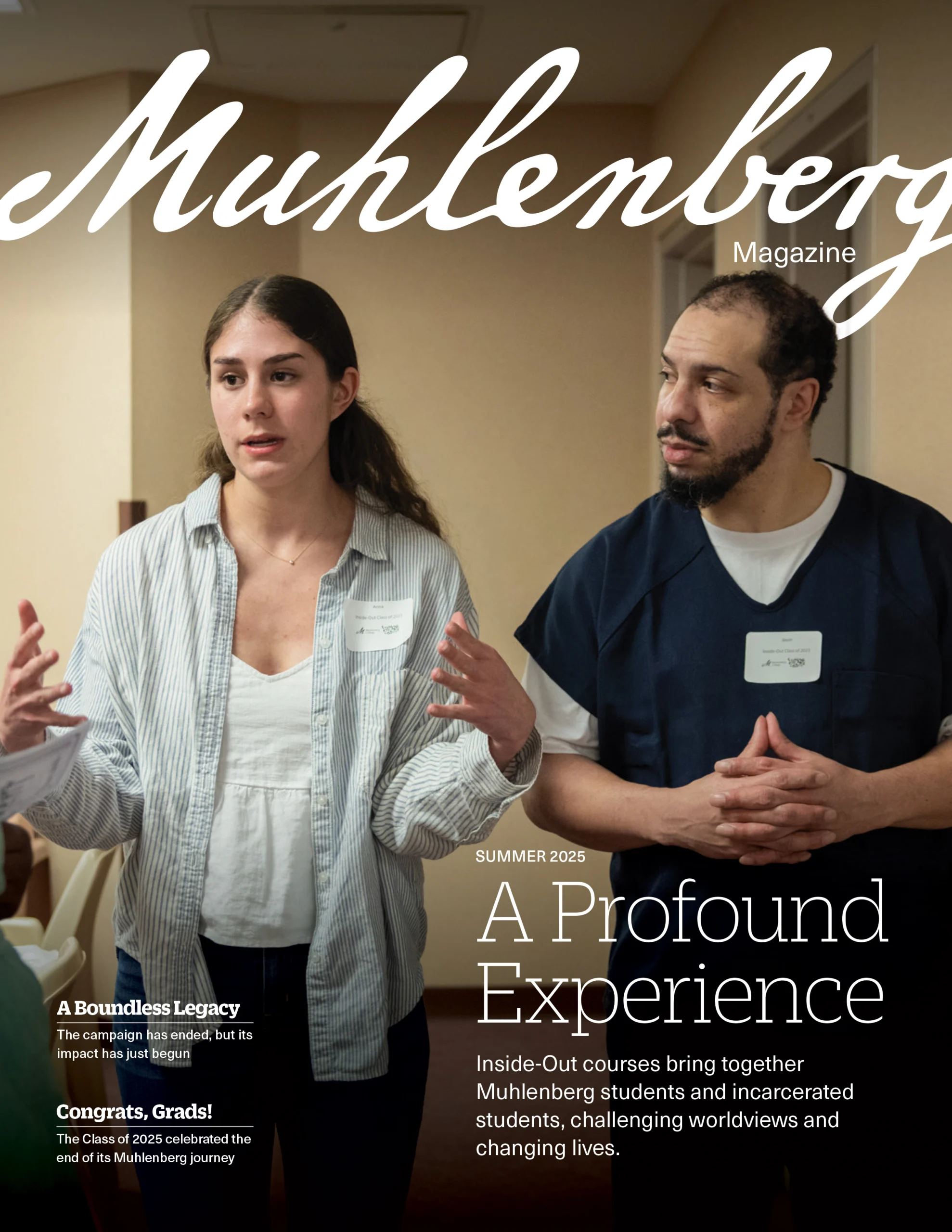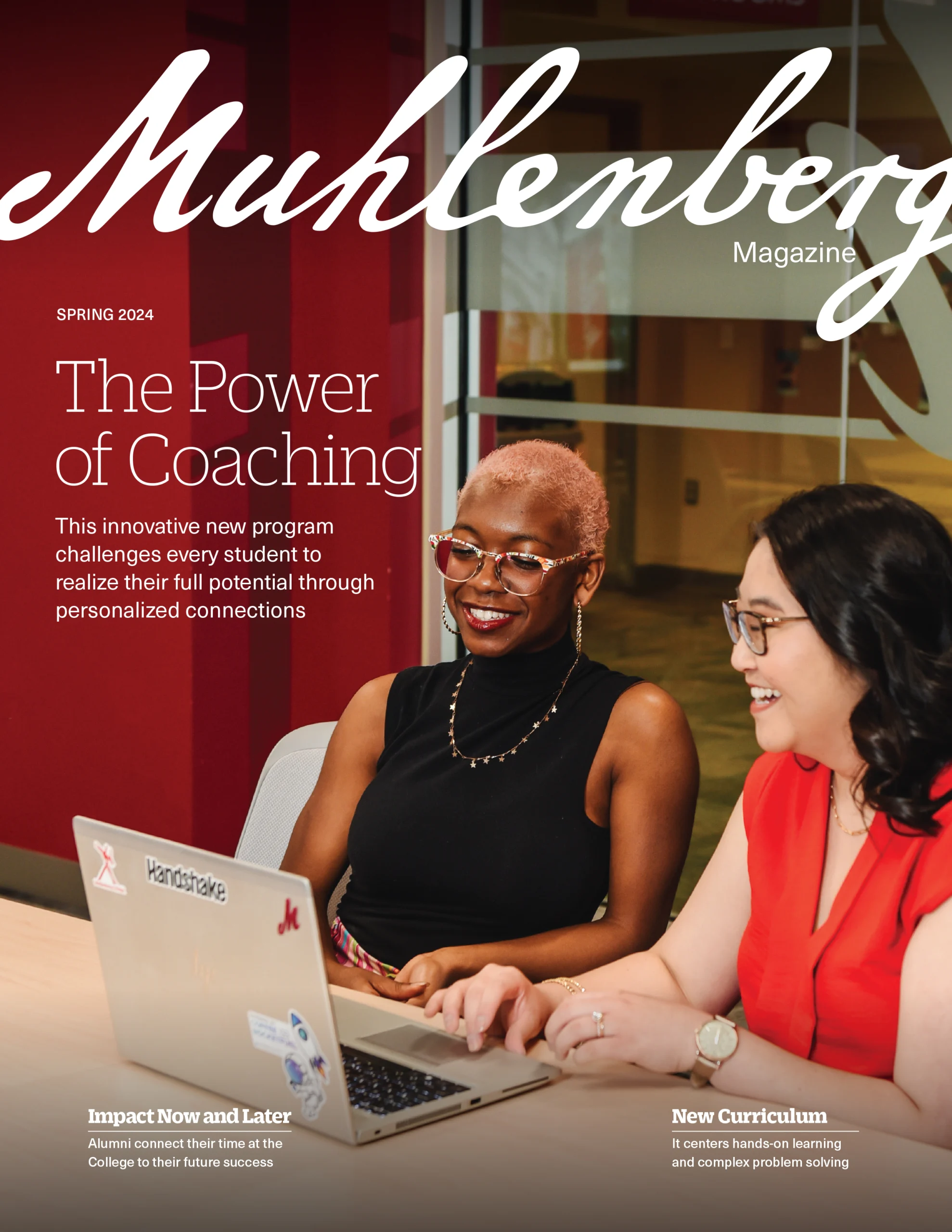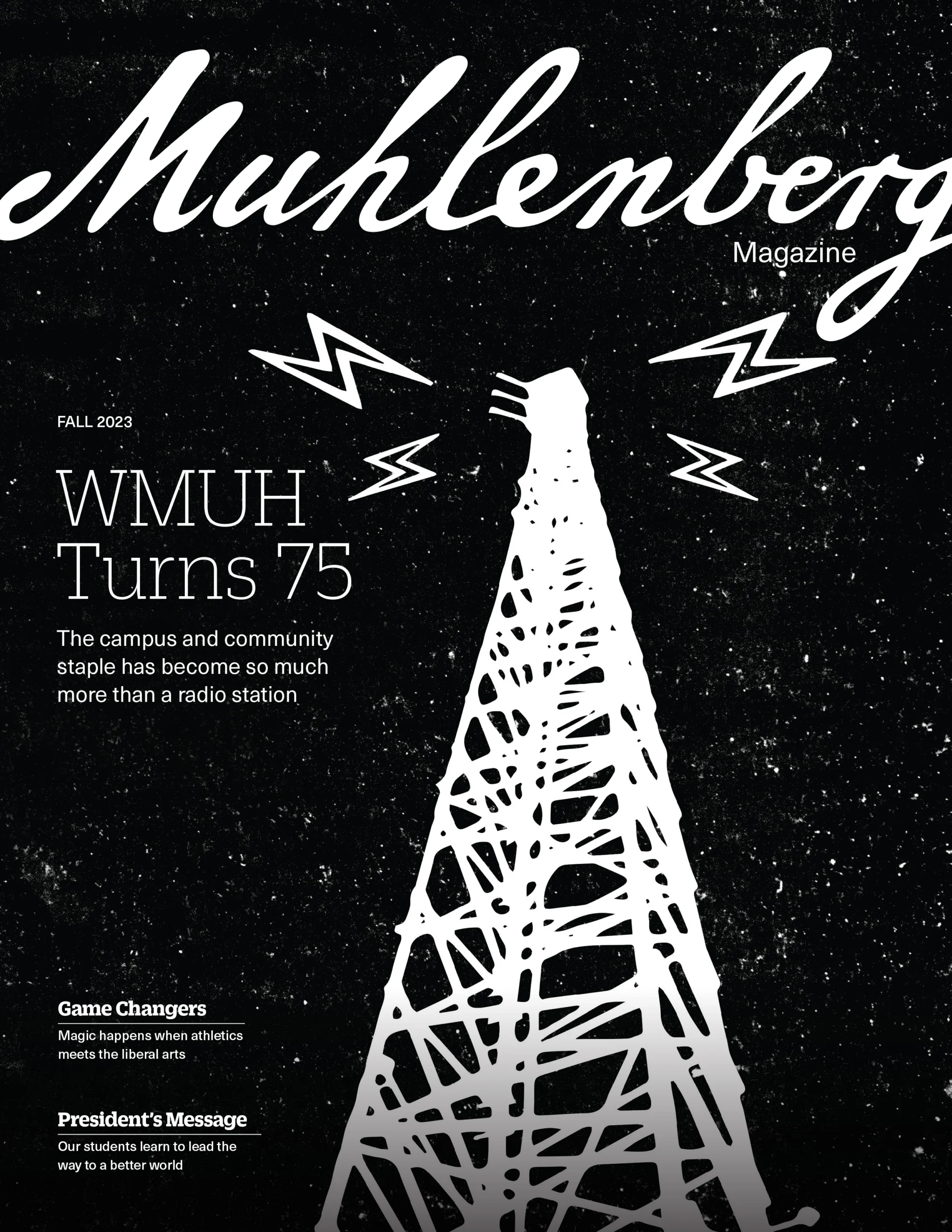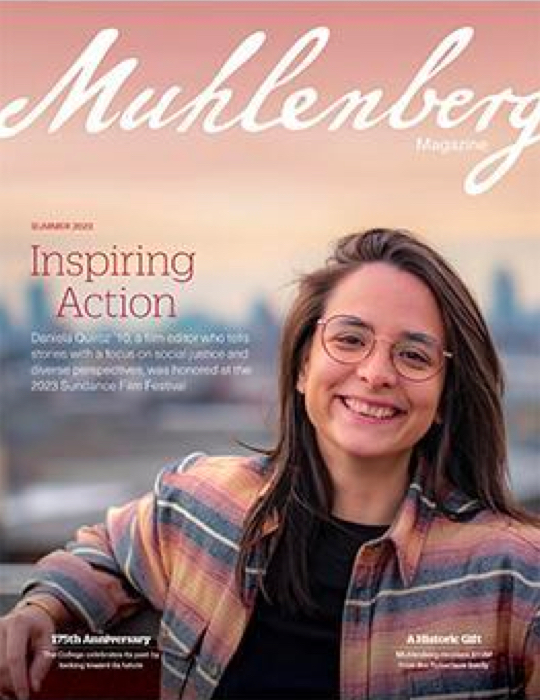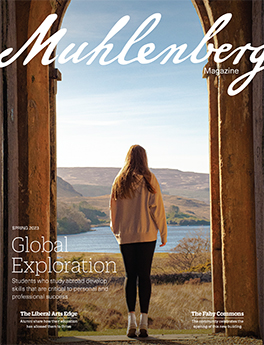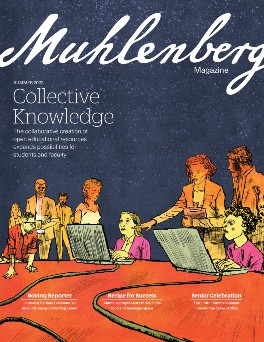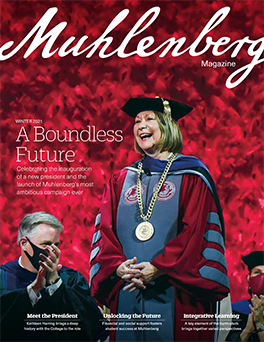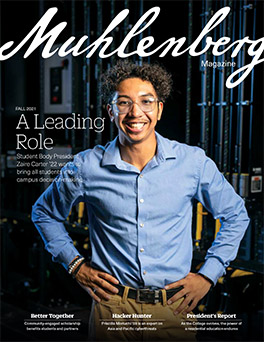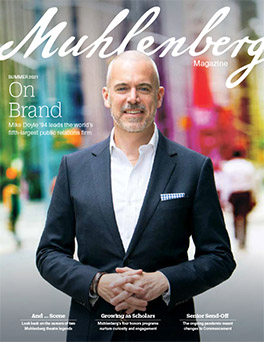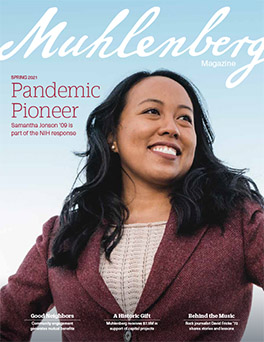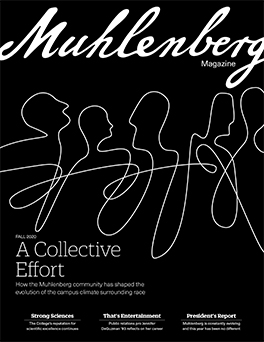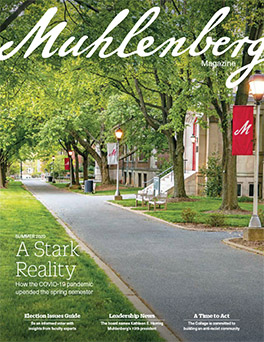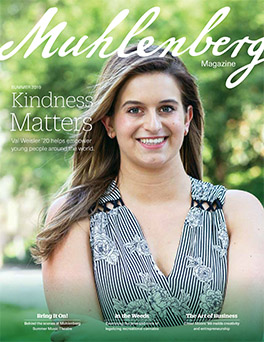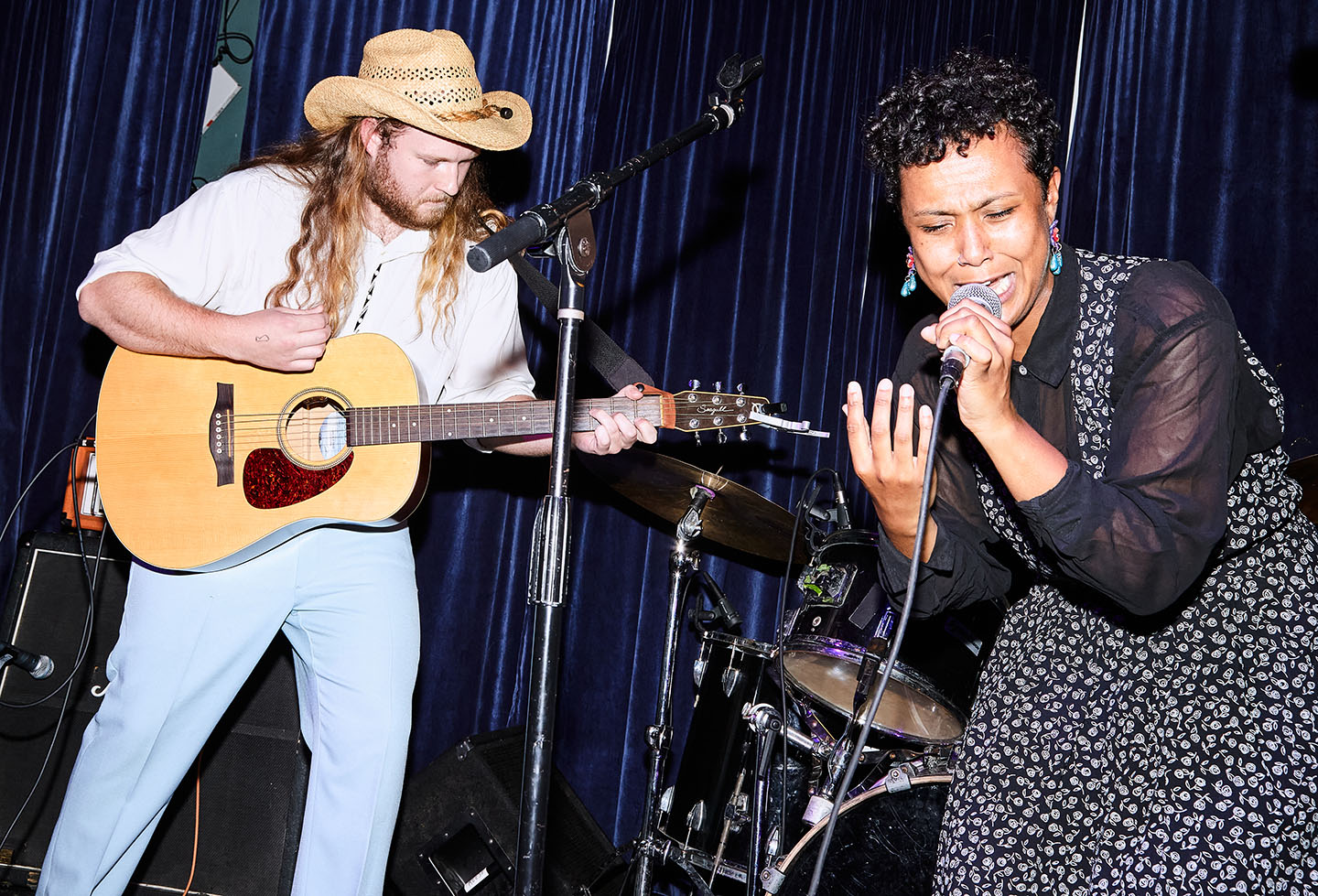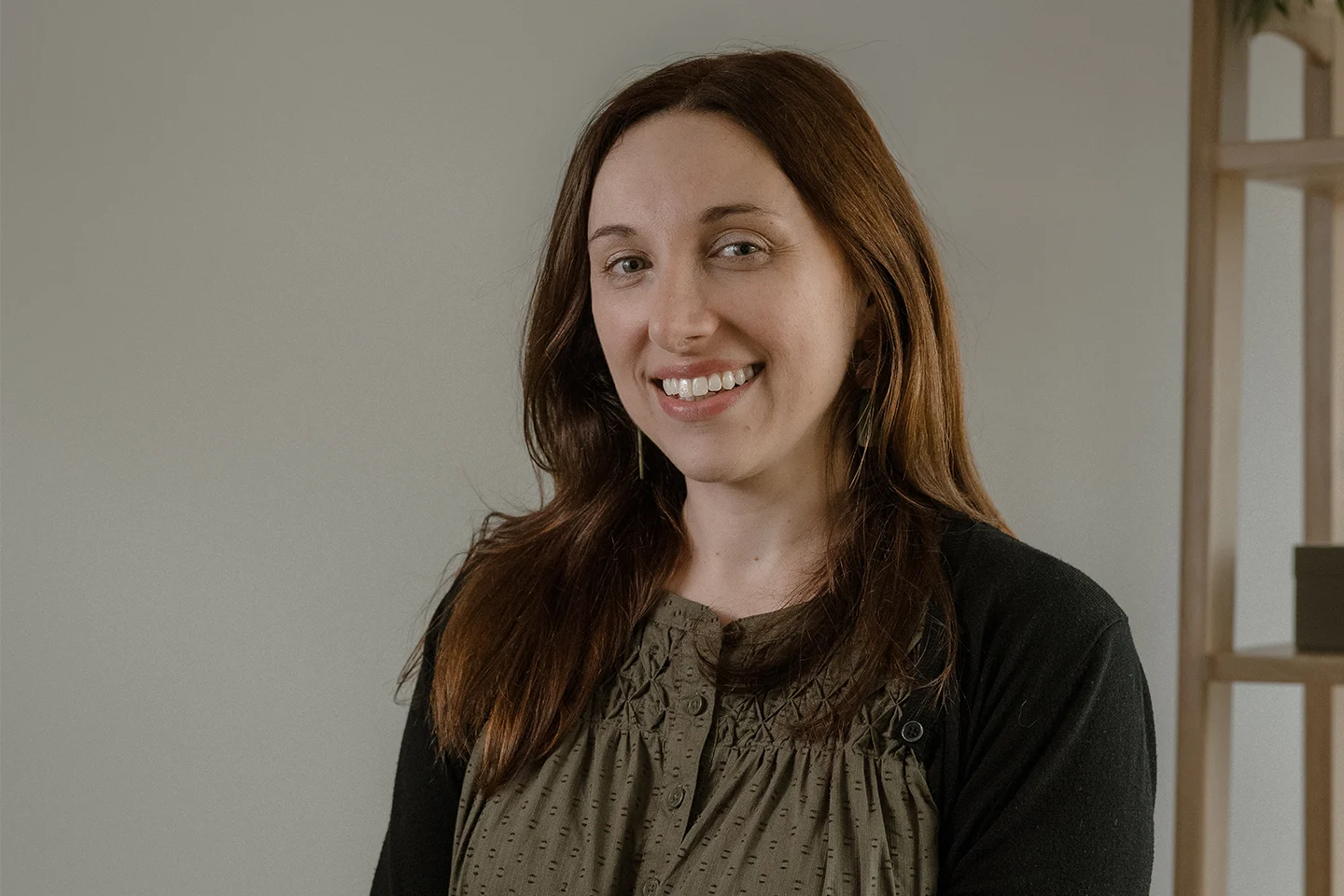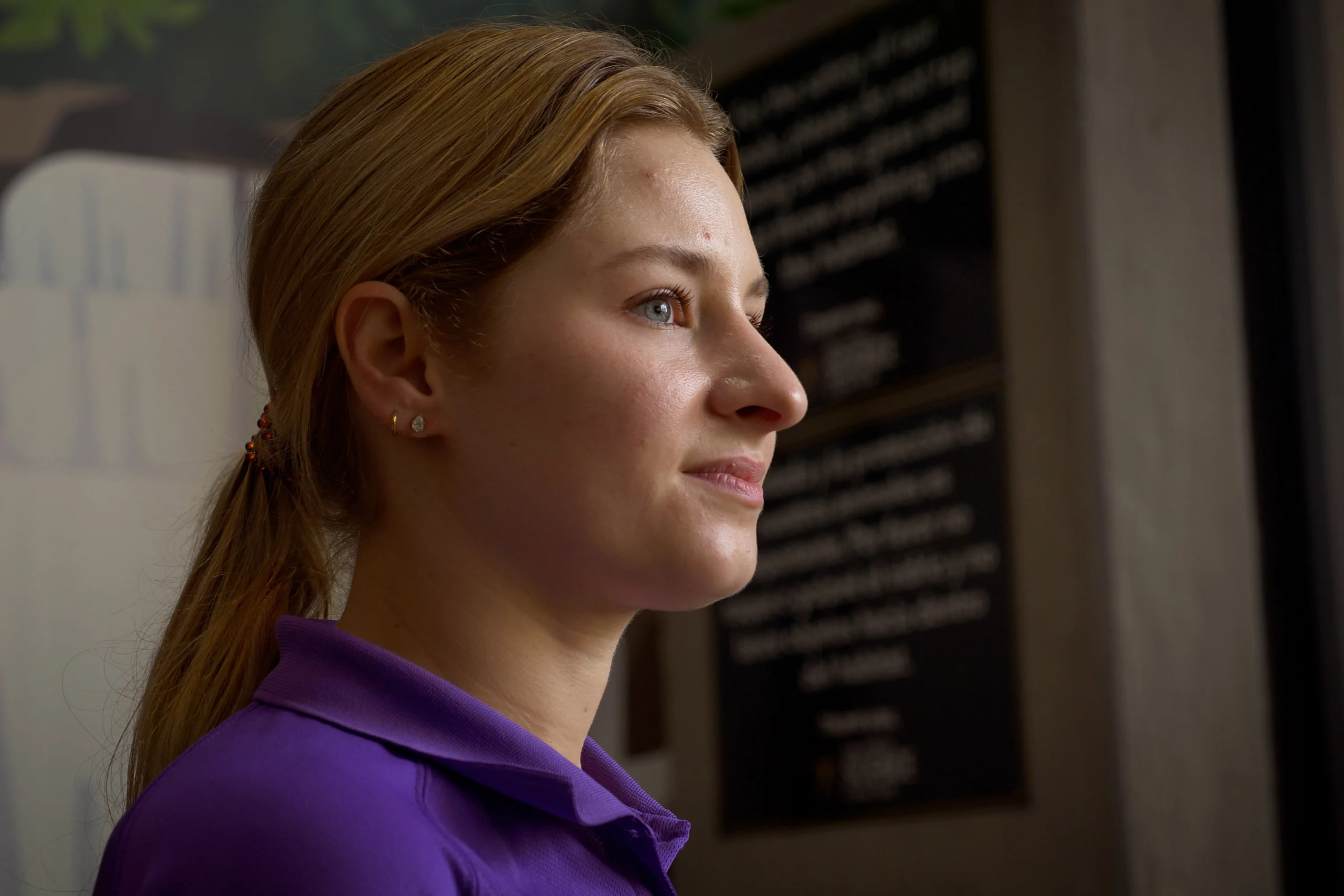During their first semester at Muhlenberg, theatre majors Seamus Good ’18 and Cameron Silliman ’18 immediately connected, both romantically and artistically. As students, they directed each others’ work, acted across from one another and swapped ideas they weren’t ready to share with anyone else. Upon graduation, Silliman, who was also a Spanish major, went to teach English in Spain, and Good took a role at Italy’s Accademia dell’Arte, where he’d studied abroad. They chose to continue their creative partnership through music: They’d collaborate on lyrics, Good would write guitar parts and Silliman would work on melodies. That project became Granite Garden, a rock, folk and jazz band that’s now based in New York City. In June, the group released its first single, “Am I Just Bored?” Granite Garden has its first album recorded, and Good and Silliman are exploring how best to market and release it.
Muhlenberg Magazine: Where did the band name come from?
Cameron Silliman ’18: I grew up in New Jersey. Seamus grew up in New Hampshire. I was trying to combine that. The first idea was Granite Shore, even though I don’t have a relationship to the Jersey shore. I think it was [Seamus] who was like, “If we’re pulling ‘granite’ out of The Granite State, why don’t we choose ‘garden,’ because New Jersey is The Garden State?”
Seamus Good ’18: I also love alliteration, so that happened to work out.
It ended up feeling pretty reflective of the musical traditions that we
find ourselves pulling from or influenced by and also a really personal
connection to the places we grew up.
MM: How do your theatre backgrounds inform your music?
SG: From a songwriting perspective, we’re always putting story first. Sometimes it’s really narrative. Sometimes it’s very specific, about a character going on some kind of a journey. Sometimes it’s more like an evocative internal monologue, a statement of a character’s or a person’s current feeling or stance on something. When you’re writing from a story perspective, it naturally comes out that the music that backs that ends up being very different from song to song.
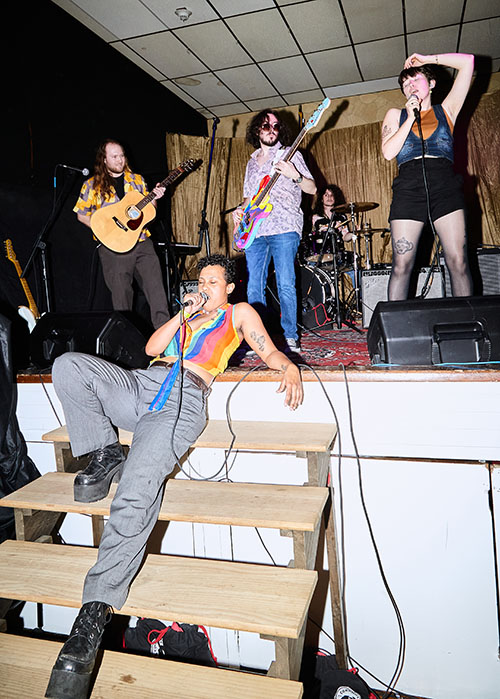
MM: How has your relationship as collaborators grown?
CS: I’ve always been a pretty creative person, but it took me a very long time to turn it into a collaborative thing. Seamus has always sensed that I would be interested in or good at certain projects. He’s always [given] a little encouraging push of, “I think we should do this together.” If I look back on all the crazy projects we’ve done, most of them have been by Seamus’ invitation. It took several years, but I’m a little more willing to just throw myself into these things now.
